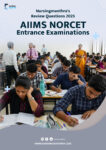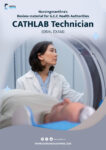- A pleural fluid exudate would have a cell count of over —–cells/cumm
a. 250
b. 500
c. 750
d. 1000
✅ Answer: d. 1000
Rationale: Exudative pleural effusions usually have >1000 cells/cumm due to inflammation, malignancy, or infection. - The yeast form of fungi generally multiplies by budding, the bud is known as a?
a. Blastospore
b. Sporangiophore
c. Microspore
d. Conidospore
✅ Answer: a. Blastospore
Rationale: Yeasts reproduce asexually via budding, forming blastospores. - Autologous presurgical donations are not allowed for which of the following patients?
a. Weigh less than 100 lb
b. Under the age of 14
c. With haemoglobin of 13g/dl
d. With bacteremia
✅ Answer: d. With bacteremia
Rationale: Active infection is a contraindication due to risk of transfusion-related sepsis. - All are true regarding Salmonella gastroenteritis except?
a. Mainly diagnosed by serology
b. Blood and mucous may be present in stools
c. Caused via animal products
d. Symptoms appear between 8-48 hours
✅ Answer: a. Mainly diagnosed by serology
Rationale: Salmonella is diagnosed via stool culture, not serology. - Two fasting glucose values above —– mmol are indicative of diabetes mellitus?
a. 5
b. 7
c. 9
d. 12
✅ Answer: b. 7
Rationale: FPG ≥7.0 mmol/L (126 mg/dL) on two occasions confirms diabetes. - Osmolality can be defined as a measure of the concentration of a solution based on?
a. The number of particles present
b. The number and size of particles
c. The density of particles
d. The isoelectric point of particle
✅ Answer: a. The number of particles present
Rationale: Osmolality is solely based on particle count, not size or type.
7. Which gas is commonly used for fumigation of operation theatres?
a. Formaldehyde
b. Beta propiolactone
c. Ethylene oxide
d. Methylene oxide
✅ Answer: a. Formaldehyde
Rationale: Formaldehyde is widely used due to its effective antimicrobial properties.
8. In ALL which of the following antibodies is usually decreased?
a. Ig G
b. Ig M
c. Ig A
d. All of the above
✅ Answer: d. All of the above
Rationale: ALL leads to suppression of all immunoglobulins due to immature lymphoid cell proliferation.
9. Lactophenol cotton blue is used to identify?
a. Leptospira
b. Helicobacter Pylori
c. Fungi
d. AFB
✅ Answer: c. Fungi
Rationale: It stains fungal cell walls, aiding microscopic identification.
10. Which malarial species is not responsible for causing malaria in humans?
a. Vivax
b. Falciparum
c. Knowlesi
d. Ovale
✅ Answer: c. Knowlesi
Rationale: Though zoonotic, P. knowlesi is not a traditional human malaria species.
11. Average incubation period of syphilis is:
a. 6 days
b. 3 weeks
c. 3 months
d. 1 year
✅ Answer: b. 3 weeks
Rationale: A chancre typically appears 10–90 days after exposure.
12. Iodine is converted into iodine in which gland?
a. Adrenal gland
b. Thyroid gland
c. Parathyroid gland
d. Suprarenal gland
✅ Answer: b. Thyroid gland
Rationale: The thyroid oxidizes iodide to iodine for hormone synthesis.
13. Match Dulcet with color code:
a. Green
b. Red
c. Blue
d. Pink
✅ Answer: d. Pink
Rationale: Dulcet is often color-coded pink in clinical charts (non-standard classification).
14. HIV virus contains:
a. Single-stranded DNA
b. Single-stranded RNA
c. Double-stranded DNA
d. Double-stranded RNA
✅ Answer: b. Single-stranded RNA
Rationale: HIV is an RNA retrovirus using reverse transcriptase to integrate into host DNA.
15. Most common cause of infective myocarditis is:
a. Viral – Coxsackie A
b. Bacterial – Corynebacterium
c. Fungal – Aspergillus
d. Rickettsia – R. typhi
✅ Answer: a. Viral – Coxsackie A
Rationale: Coxsackievirus is the leading viral cause of myocarditis.
If you would like access to more questions for the Medical Laboratory Technologist Prometric Exam, you can purchase the complete study material using the link provided below. For any assistance or to request the material, please contact Nursing Manthra via WhatsApp.” +971502515717

















